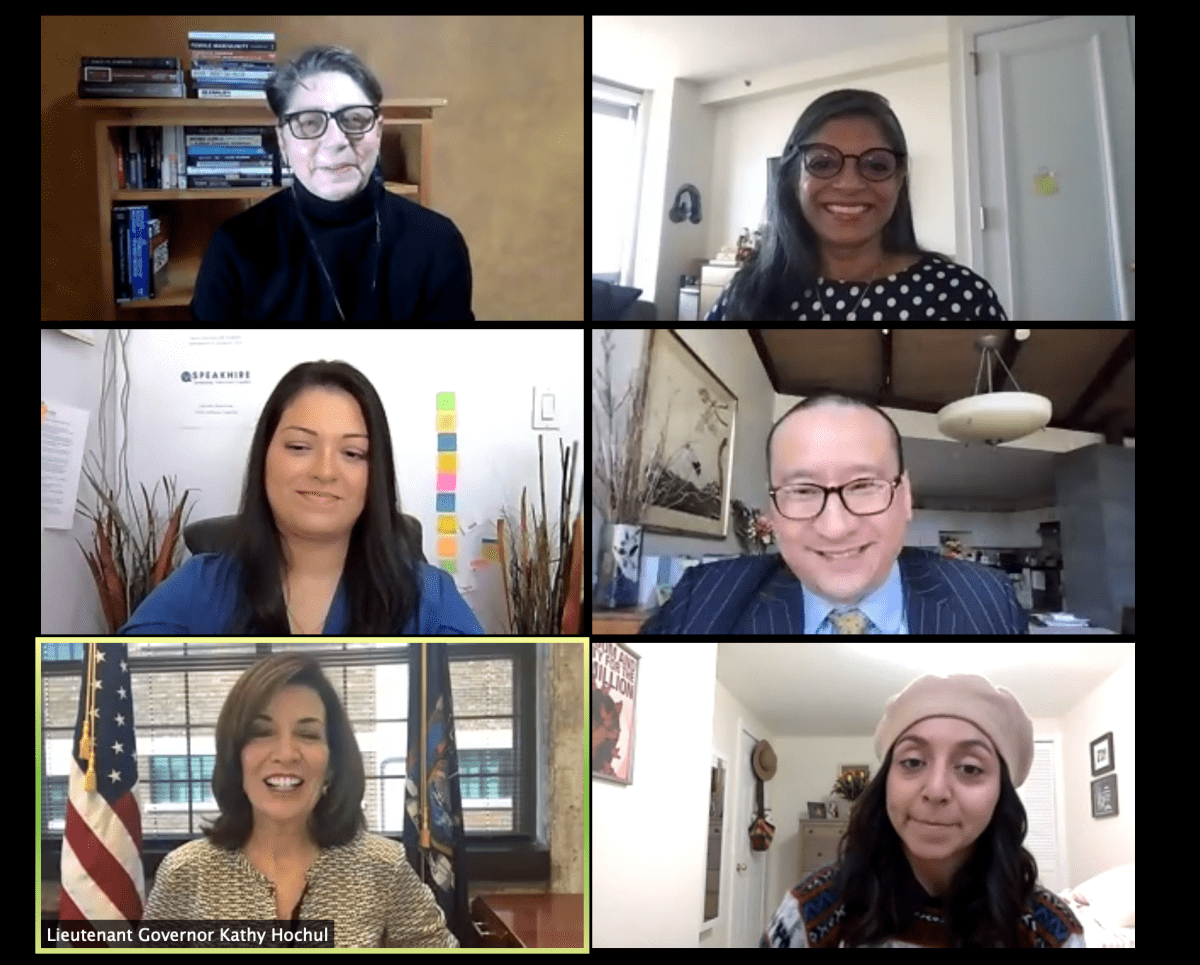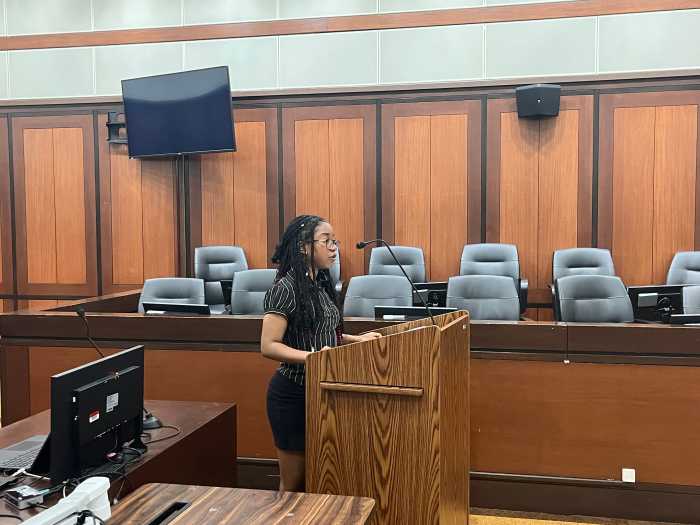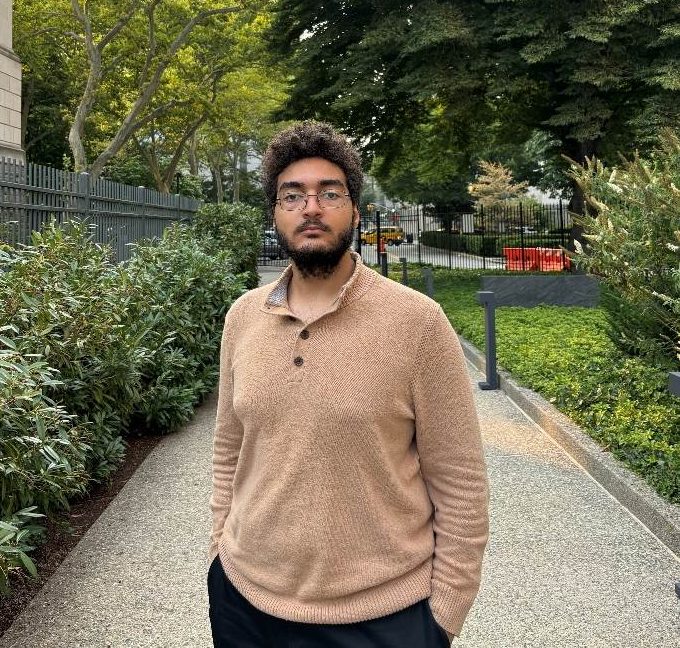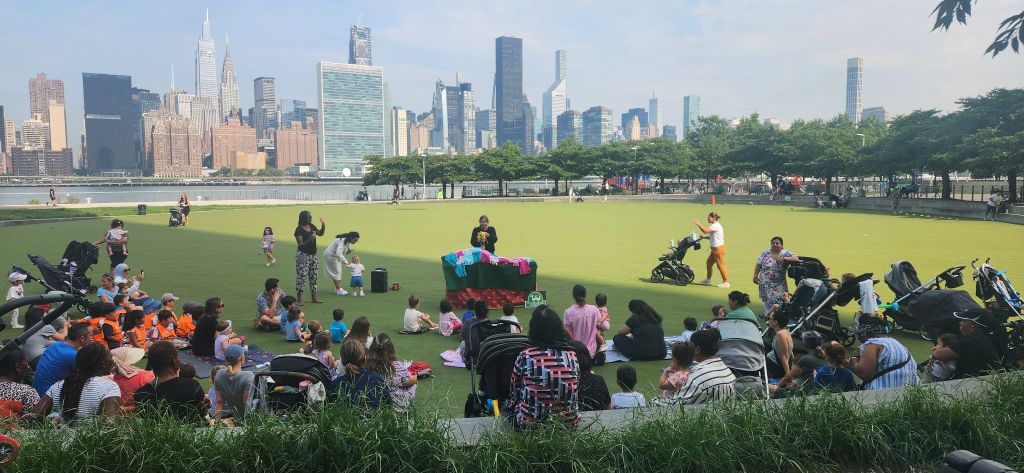In celebration of Women’s History Month, Queens College hosted a virtual panel discussion on Monday, March 15, celebrating the achievements and contributions of women around the globe, and the challenges they’re facing amid the COVID-19 pandemic.
Presented by the Queens College Women and Gender Studies Program, the Palmer Women’s History Month symposium, “Women, Advocacy, and Activism in a Global Pandemic,” featured four female leaders from organizations that highlighted women’s labor, child care and education, global advocacy for immigrant communities, and responses to increased domestic violence.
Two Queens College alums — Indrani Goradia, founder of RAFT Cares, and Hetal Janai, founder of SPEAKHIRE — joined Jenny Brown, an teacher/activist of the National Women’s Liberation, and Diana Moreno, director of the New Immigrant Community Empowerment (NICE) Center. Lieutenant Gov. Kathy Hochul delivered remarks encouraging the women to continue using their voices to make a profound difference in the lives of others, but particularly the lives of women, as we come out of the pandemic.
“Use your voices to encourage people to do what’s right — to step forward and get the vaccine when it’s available to them. I know in communities of color there’s distrust and worry, and I need all of you to help us with that,” Hochul said. “In the meantime, we cannot lose sight of the fact that women were hardest hit by the pandemic.”
According to Hochul, prior to the pandemic, women were already on the front lines working in hospitals, pharmacies, grocery stores, restaurants and making deliveries, while bearing the brunt of childcare — one of many challenges that are still being addressed today.
According to Brown, there has been a demand for a system of health care where one is guaranteed coverage no matter what, and a universal child care system with a unionized workforce with national standards.
“We have a terrible situation with paid leave in the U.S. with only 12 weeks of unpaid leave, and very few people can take unpaid leave and you can’t forgo a paycheck for three months,” Brown said. “Also, infant child care is expensive and we’re proposing a shorter workweek for all workers and an extensive mandated paid sick leave … compared to Germany we are working 10 extra weeks a year.”
On the controversial issue of abortion and birth control, Brown worked on a campaign with National Women’s Liberation to make the morning-after pill (MAP, also known as “emergency contraception”) available to all women without restriction.
Speaking on the exploitative working conditions in particular for immigrant workers, Diana Moreno, chief of staff for the New Immigrant Community Empowerment (NICE) Center in Jackson Heights, said there have been constraints placed on immigrants and labor, especially amid the pandemic.
“In the past year, we have transformed from being a worker center to being a relief and recovery center,” Moreno said. “We have seen a lot of members facing eviction, folks going through food insecurity or living in cramped conditions where COVID impacts the entire household.”
Referencing Brown’s statement regarding women workers unable to lean on a social safety net to help them raise children, Moreno said immigrant workers received no federal assistance of unemployment insurance and a stimulus package.
“They’ve had to survive and were already a population on edge,” Moreno said. “The pandemic has only shown the cracks in the system — the fault lines that were already there and have been opened.”
Meanwhile, for women living with abusive partners during the COVID-19 lockdown, it made a difficult and dangerous situation even worse.
Goradia, founder of RAFT Cares that is dedicated to improving the level of care for domestic violence survivors and for supporting domestic violence caregivers, said one in three women will be a victim of sexual or domestic violence in her lifetime.
“During the COVID-19 lockdown, there were more women locked up with their abusers than we care to know, and we won’t know the full effect for years because the reporting went down,” said Goradia, a philanthropist and advocate for women’s health and empowerment.
A victim of severe child abuse in her household, Goradia said it’s important for women to find a trusted source and to speak about what is happening in their lives.
“If students are living in homes where women are taught to speak less, be less visible, cater to males, and there’s violence, there’s a good chance those students might leave college,” said Goradia, who was told to drop out of college so take care of her family.
Echoing Goradia’s message about empowering women on the education front, Jani said it’s critical to tell young people that whatever goals they may have, it’s very much possible to pursue a career.
Jani launched her nonprofit SPEAKHIRE that works with students of immigrant backgrounds providing them with social capital and network development to access more opportunities.
“It’s their accent, it’s their level of English and as they try to figure out where they belong, a lot of times parents may discourage them,” Jani said. “They still carry the traditional beliefs that a woman should stay home. It was an idea that we need to get these girls role models.”
For immigrant students who might feel the pressure of choosing a major that they may not want to study based on their parents’ expectations and career choices, the panelists say it’s important to open the door to a conversation to help guide students and parents to show them the possibilities.
“We cannot dismiss those concerns — it’s very real — and the parental concerns [by saying that] that they’re just old-fashioned; let’s actually address them,” Moreno said. “Let’s help our guide our students to the root of the concerns that they have, which is usually a concern of economic stability and for immigrant parents who have sacrificed so much for the opportunities they have given us.”




































